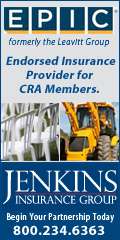
| Past Issues/Subscribe | Advertise |
Air Board Asks Courts to Create New Tax
In a landmark case before the Third District Court of Appeal, the California Air Resources Board (ARB) recently argued for the creation of an unprecedented tax doctrine that could raise billions of dollars in new revenues. The ARB described the new revenue not as a tax or a fee (or any other recognized revenue-raising mechanism), but as a "byproduct" of a regulatory program.
CalChamber Challenge
The case, California Chamber of Commerce v. California Air Resources Board, challenges the legality of the cap-and-trade auction ARB set up as part of its program to reduce greenhouse gas (GHG) emissions to meet goals outlined in AB 32, the climate change law.
The CalChamber is arguing that:
• The ARB exceeded the authority the law granted it by reserving GHG allowances to itself and auctioning those allowances to GHG emitters to raise revenues; and
• Such an auction is a "tax" requiring a two-thirds vote of the Legislature, which was not obtained.
The CalChamber is not challenging AB 32 or the cap-and-trade mechanism itself, because the goals of AB 32 can be achieved effectively using cap and trade. In fact, the efficacy of cap and trade to meet the GHG reduction goals would be unaffected in the absence of the auction.
The lawsuit aims to prevent the powerful regulatory agency from expanding its reach beyond the boundaries set by the Legislature, and to maintain the integrity of the revenue-raising rules of Proposition 13.
Air Board Claim
But the ARB has raised the stakes even higher by suggesting that the revenues raised by the auction are neither taxes nor fees.
The auctions so far have raised nearly $1.6 billion in revenues that have been deposited into state coffers. The Legislative Analyst has estimated the auction will raise tens of billions more dollars by 2020.
The ARB instead claims that the auction is a legitimate exercise of its regulatory powers and that the billions in new revenues are "incidental" to that regulation. In fact, the ARB flatly states that the auction was not enacted for the purpose of increasing revenues; therefore, it is not a tax.
The Air Board had previously acknowledged that the auction revenues resided comfortably within the state’s tax system, and as "a non-distortionary source of proceeds" could be used "as a substitute for distortionary taxes such as income and sales taxes."
Fee or Tax?
The lead doctrine on determining whether a charge is a fee or a tax is the California Supreme Court decision in Sinclair Paint v. Board of Equalization.
The court held that a regulatory fee is legitimate if:
• There is a reasonable relationship between the amount charged and the burdens imposed by the fee payer’s operations;
• It is not used for unrelated revenue purposes; and
• The remedial measures funded with the charge are caused by or connected to the fee payer’s operations.
Lacking any of these factors, the charge is a tax.
New Revenue Category
Since it is apparent that the auction cannot meet these criteria, the ARB dismissed Sinclair’s relevance, stating that the "requirements that govern fees are not useful for reviewing other exercises of the police power."
Even though the ARB claims the revenues are incidental to a regulatory program, it declined to label them as "fees."
In other words, the ARB has asked the court—in the case of fees imposed for regulatory purposes—to disregard the leading doctrine on regulatory fees.
To be sure, there are charges that government legitimately imposes that are neither fees nor taxes which fit comfortably within the Proposition 13 rubric: special assessments and development fees for infrastructure, charges for goods and services, fines and penalties for law breaking.
But the ARB has sought refuge in none of those time-tested revenue constructs. Instead, it has asked the court to invent a new, unique category of non-tax, non-fee, non-assessment, non-penalty, non-service charge that fits the auction revenue system.
The ARB is seeking a safe harbor for revenues "incidental to regulation" that it claims are not regulatory fees, and which will generate tens of billions of dollars for new spending programs that somehow are not taxes.
In fact, next year the revenues from auctions will be one of the largest sources of state revenues—and bound to grow as the ARB allocates even more allowances to itself.
CalChamber Objection
The CalChamber has vigorously disputed this new doctrine, calling it "unprecedented, undemocratic and amorphous."
Proposition 13 and the Sinclair decision have limited and rationalized tax and fee doctrine for 37 years, setting out the rules that balance operational flexibility with accountability.
The Court of Appeal will hear oral arguments in this case later this year.
|

| calrental.org |



